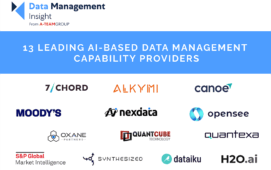The tie up between the Object Management Group (OMG) and the EDM Council could go some way towards making the data management industry group’s semantic repository more accessible to the market, according to Richard Soley, chairman and CEO of OMG. By providing a governance framework via which regular, scheduled updates to the repository can take place and a formal process for the maintenance and control of the data held therein, OMG will aim to support the repository’s efforts in the data management space.
The two parties began talking to each other around a year and a half ago, according to Soley, and OMG has previously worked with financial industry standards bodies such as FIX Protocol on the development of he Unified Modelling Language (UML) for financial services. UML is a method of graphically representing the analysis and design of computer applications and metadata, and is therefore focused on automating the translation process between data formats. Semantics and ontologies within the financial services industry were therefore very much on the radar of the OMG, and this is where the EDM Council’s own efforts came into focus.
First announced back in 2008, the EDM Council’s semantic repository aims to standardise the terms and definitions of all reference data attributes stored in the master files of financial institutions. Thus far, the repository has been updated based on member adjustment to static reference terms for tradable securities and the industry group has finalised a draft of the semantic repository based on feedback from subject matter expert reviews.
The industry group is now attempting to prove the feasibility of the project in practice and is extending to other areas such as various derivatives instruments that were not originally under its remit. The plan is also to get the semantic repository on the radar of the US regulatory community, as it moves towards mandatory data standards for legal entity and instrument identification.
By teaming up with the OMG, it is therefore hoped that the semantic repository work will be more easily extended into the realms of practical implementation within financial institutions themselves. Mike Atkin, managing director of the EDM Council, notes that the semantic repository was built using the OMG’s tools, but the opportunity now is for the project to benefit from the OMG’s governance framework. “It provides us with the technical and governance framework in order to turn the semantic concepts within the repository into deployment reality,” he explains.
The extension of the current models contained within the repository is on the agenda next and Atkin indicates that the EDM Council is keen for more enhancements to be made in order to improve its ease of use within financial institutions. He singles out the benefits of the OMG’s technical framework, governance structure and its global and industry reach as key drivers for the partnership.
Soley adds: “We have a clear release process for updates to our standard frameworks and this permits a higher degree of consistency and dependability for those using them. OMG also provides access to those specialised in the field of semantics technology in order to assist with any expansion plans.”
Both Soley and Atkin are confident that the semantic repository has a part to play in the evolving regulatory environment, as regulators seek to get a better handle on the industry’s basic reference data items for systemic risk tracking purposes. Much like other bodies in the space such as the Association of National Numbering Agencies (ANNA) or Swift, EDM Council is lobbying for a seat at the table in the context of an industry utility.
“Regulators will need to receive lots of different data sets from the industry that will be in many different formats in order to track systemic risk,” contends Soley, “this will therefore require some level of semantic interoperability and translation. The semantic repository could certainly play a part in this effort.”
Subscribe to our newsletter




